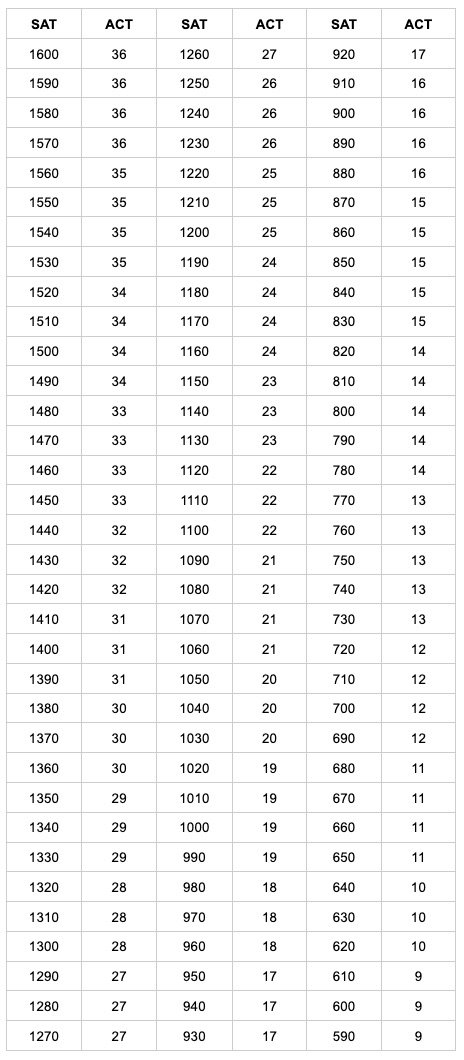Comparing ACT & SAT Scoring
Test-optional policies became widespread in 2020 due to COVID‑19 disruptions. All eight Ivy League schools remained test-optional through 2024. In Fall 2025, Harvard, Yale, Dartmouth, Brown will require SAT/ACT scores, while MIT (since 2022) and Georgetown (since 2023) already reinstated theirs. Penn and Cornell are reinstating testing for Fall 2026 applicants. Columbia adopted a permanent test-optional policy in March 2023.
Regardless of whether the school you’re applying to requires a test, Ivy Link strongly encourages students to take the SAT or ACT—and to submit scores even to test-optional colleges. A high score provides “extra credit”: a way to distinguish your application among peers with similar grades, essays, and extracurriculars, and to signal academic initiative.
While the formats of the SAT and ACT differ, the exams are fairly similar in content—testing reading, writing, and math. Colleges accept a strong score on either with equal regard. Some students find the format of one test vs the other easier and our experts can help you determine which test to focus on
Each test has a distinct scoring scale, and the College Board has produced a concordance study to compare scores from both exams. While the concordance is not an exact equivalent, it’s a useful tool for comparing and predicting a student’s performance.
If standardized testing isn’t your strong suit—or if you want help navigating the digital SAT or Enhanced ACT (rolling out in Sept 2025)—Ivy Link provides personalized 1:1 test prep. Our students take multiple full-length practice tests under simulated conditions, building familiarity and confidence over time.
We recommend starting as early as 10th grade to give yourself ample time to prepare and peak when it matters.
Not sure which test is right for you? Schedule a diagnostic or advising session to get clear, confident next steps tailored to your goals.



